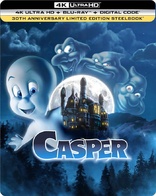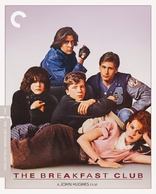 04-03-2009, 04:16 AM
04-03-2009, 04:16 AM
|
#1
|
|
Blu-ray Knight
|
 Haggling With the Stars
Haggling With the Stars
Very interesting article centering around the payday Marvel offered Johansson and Rourke for their parts in Iron Man 2

Here are some quotes from the article. Click the pic above to check out the entire story. It's pretty interesting.
Quote:
You’re Scarlett Johansson. You’re pretty and you’re pretty famous, too. And you’ve just been offered the part of the Black Widow in Iron Man 2! That’s got to be some payday, right?
How about $250,000, which is what Marvel Studios offered Johansson and Mickey Rourke to be in the film?
The stars negotiated the number up to something over $400,000. Still, it’s not hard to imagine that even a year ago Johansson could have expected to break seven figures for a role in a big franchise film. It’s a pretty thrifty deal for such a recognizable name.
Quote:
|
If an actor balks at the deal, the studios say they will move to another choice immediately. “They’re not f*cking around,” says the talent representative. “They know exactly who that next person is. Sometimes they’ll tell you.”
|
But salaries are being slashed now in Hollywood and even bigger stars are not immune. “Why would anybody pay Julia Roberts $20 million to do Duplicity?” says one producer. “That won’t happen again.” Indeed, this source says Sony Pictures is ponying up $15 million for Roberts to do Eat, Pray, Love and probably already regrets having committed to pay that much.
|
Quote:
That clearly seems to have been the case with Johansson and Rourke, says an agent who doesn’t represent either actor. “On certain movies, they feel like whoever they put in a part is fine. Once they lock down Robert Downey, Jr., on Iron Man 2, everything else is fine. I don’t think they give a shit if it’s Mickey Rourke or Scarlett Johansson.”
Tim Connors, COO of Marvel Studios, doesn’t put it exactly that way. "We don't like to be portrayed as being disrespectful to talent, notwithstanding the fact that we are very budget-conscious and can't always meet an actor's initial asking price,” he says. “We say, `We wouldn't normally ask an actor at this level to do this but we'd be thrilled to have them." (And if they say yes, they can not only buff up their images but also look forward to possible future roles in films featuring their characters.)
|
Quote:
For really big stars, it isn’t about a reduced salary. For decades, the ultimate status symbol in Hollywood has not been a fast car or a Birkin bag but “dollar-one gross.” That means getting a share of the studio’s gross receipts regardless of whether the studio has earned back its costs. The studios struggled to hold the line on the amount of pure, uncut gross that big-name stars, directors, and producers could reap. (The notorious peak came in 2000, when Universal had more than 30 percent of the profit committed to Jim Carrey, Ron Howard, and others on How the Grinch Stole Christmas. The film grossed more than $340 million worldwide and still wasn’t considered a success.)
The studios seem determined to all but kill off these rich deals, especially on big-budget films (where the risk to the studio is highest). “If a budget is over $100 million, they don’t want to give dollar-one gross to anybody,” says a leading agent. Now, studios insist on recovering their costs before stars dig into the profits. If a star has clout, the studios might offer a bigger-than-usual slice of profit or big bonuses if the film turns out to be a hit. With those, a star could make even more money under the new system than he would have under his old, dollar-one gross deal. (Baiting the hook this way doesn't appeal to the thrifty folks at Marvel, however. Marvel wouldn't give up a lot of profit on a hit movie just to reduce its risk if a movie disappoints. Connors says it in COO-speak: "Giving away a huge amount of upside to protect a downside—that's a strategy that doesn't make sense for us.")
|
|
|
|

|






















 Linear Mode
Linear Mode

